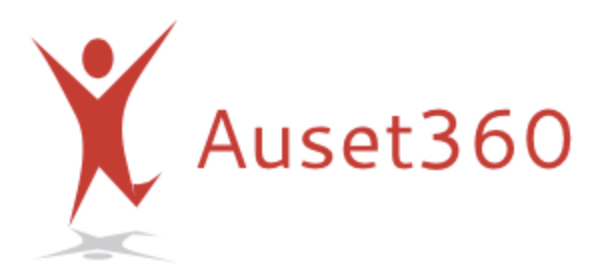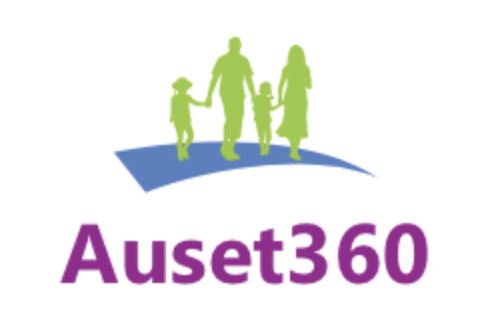This is the heading
“Auset360” as a not-for-profit organization that supports individuals with disabilities in Ontario, particularly in the areas of physical, emotional, and mental well-being to help them overcome obstacles and secure gainful employment within their communities. This is a commendable initiative, and it’s crucial to address the diverse needs of individuals with disabilities in order to foster their inclusion and success in the workforce.

Auset360 Supporting Communities
Auset360 is a not-for-profit organization with a commendable mission of supporting individuals with disabilities in various aspects of their lives, particularly in overcoming obstacles and challenges related to physical, emotional, and mental well-being. The focus on helping these individuals secure gainful employment by collaborating with potential employers is a crucial aspect of fostering inclusivity and equal opportunities.

Needs Assessment:
- Conduct a thorough needs assessment to understand the specific challenges individuals with disabilities face in your target communities in Ontario.
- Identify gaps in existing services and resources that could be addressed by Auset360.
Partnerships and Collaborations:
- Establish partnerships with local businesses, government agencies, and other non-profit organizations to create a network of support.
- Collaborate with vocational training programs, educational institutions, and rehabilitation services to enhance the skills and employability of your beneficiaries.
Tailored Programs:
- Develop programs that cater to the diverse needs of individuals with different types of disabilities, including physical, emotional, and mental health challenges.
- Offer personalized support services such as counseling, skill development, and job readiness training.
Advocacy and Awareness:
- Advocate for the rights and inclusion of individuals with disabilities in the workplace and society.
- Raise awareness about the capabilities and potential contributions of people with disabilities to combat stereotypes and misconceptions.
Employer Engagement:
- Work closely with employers to promote inclusive hiring practices and create accessible workplaces.
- Provide resources and training to businesses on accommodating employees with disabilities.
Job Placement Services:
- Offer job placement services that connect individuals with disabilities to suitable employment opportunities.
- Provide ongoing support to both the employee and the employer to ensure a successful and sustainable work environment.
Community Engagement:
- Engage the local community through outreach programs, workshops, and events to build understanding and support for individuals with disabilities.
- Encourage community members to actively participate in creating an inclusive environment.
Continuous Evaluation and Improvement:
- Regularly evaluate the effectiveness of your programs and services through feedback from beneficiaries, employers, and other stakeholders.
- Use the findings to make necessary improvements and adjustments to better meet the needs of the community.
We Are Here To Help
Physical disabilities can vary widely and may include conditions affecting mobility, strength, coordination, and overall physical function. Some examples of physical disabilities include:
Mobility Impairments: These can result from conditions such as spinal cord injuries, amputations, or disorders affecting the muscles or joints, limiting a person’s ability to move.
Neurological Disorders: Conditions like cerebral palsy, multiple sclerosis, or Parkinson’s disease can cause physical challenges due to disruptions in the nervous system.
Musculoskeletal Disorders: Conditions affecting the musculoskeletal system, such as arthritis or osteoporosis, can impact mobility and physical functioning.
Visual Impairments: Individuals with visual disabilities may face challenges in mobility and accessing information.
Hearing Impairments: While primarily affecting the auditory sense, hearing impairments can also influence communication and interactions.
Chronic Health Conditions: Conditions like chronic pain, chronic fatigue syndrome, or fibromyalgia can impact a person’s physical abilities and overall well-being.
It’s important to note that individuals with physical disabilities may also experience emotional and mental health challenges, and Auset360’s approach to supporting individuals in the areas of physical, emotional, and mental well-being reflects a holistic and comprehensive approach to disability support.
For accurate and up-to-date information about the specific types of physical disabilities faced by the individuals Auset360 supports, it’s recommended to reach out directly to the organization. They may provide detailed information on their programs, services, and the specific needs of the individuals they assist.
Auset360 Is Working For You !
Skills Development Programs:
- Offer training programs to enhance the skills of individuals with disabilities, ensuring they have the necessary qualifications for various job opportunities.
Job Placement Services:
- Establish partnerships with employers to create job placement opportunities for individuals with disabilities, matching their skills and abilities with the needs of the workforce.
Advocacy and Awareness:
- Advocate for the rights of individuals with disabilities in the workplace and raise awareness about the importance of inclusivity and diversity.
Mental Health Support:
- Provide counseling and mental health support services to address the emotional and psychological well-being of individuals facing challenges.
Accessibility Consultation:
- Work with businesses to make their physical and digital environments more accessible, ensuring that individuals with disabilities can fully participate in the workplace.
Networking and Community Building:
- Facilitate networking opportunities for individuals with disabilities to connect with each other and potential employers, creating a supportive community.
Education and Training for Employers:
- Offer training sessions for employers to educate them on the benefits of hiring individuals with disabilities, and how to create an inclusive work environment.
Collaboration with Educational Institutions:
- Partner with schools, colleges, and vocational training centers to identify and support individuals with disabilities in their educational and career development.
Job Retention Programs:
- Develop programs to support individuals with disabilities in maintaining employment, providing ongoing assistance and accommodations as needed.
Regular Assessments and Feedback:
- Implement a system for regular assessments and feedback from both employees and employers to continuously improve and tailor the support services provided.
Remember, the success of Auset360 will depend on strong partnerships, effective communication, and a commitment to making a positive impact on the lives of individuals with disabilities. Ongoing evaluation and adaptation of programs based on the evolving needs of the community will be crucial for sustained success.